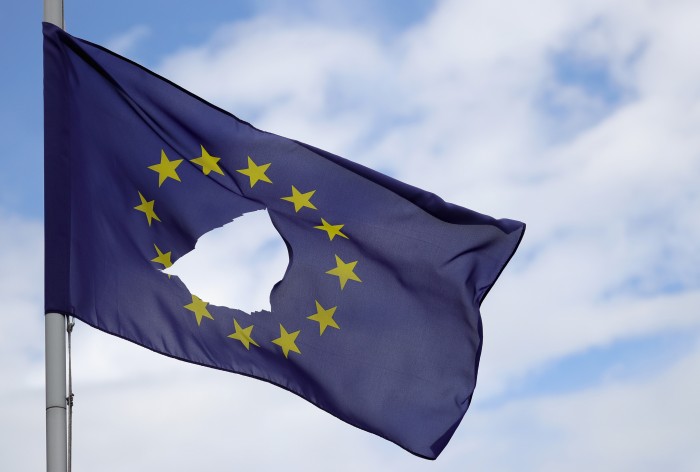Brexit Brings Chaos to Europe’s Clean-Energy Goals
U.K. voters’ decision to exit the European Union sent shock waves through world markets today, including the energy sector. The consensus from policymakers, clean-energy advocates, and analysts was that while “Brexit” will not completely derail the EU’s efforts to reduce carbon emissions under the Paris climate accord, it will certainly throw a spanner in the works.
Under Prime Minister David Cameron and his predecessors, Britain has been a leader on energy policy and support for renewable energy. Several features of EU-wide energy policy in the last decade—including breaking up power monopolies that controlled generation, transmission, and distribution—have been modeled in part on U.K. legislation.
More recently, though, the U.K. government has retreated from its support of clean energy, with severe cuts in subsidies for both rooftop and large-scale solar installations. A report released earlier this year by the U.K. Renewable Energy Association found that “repeated policy interventions of the Government are harming the UK’s position as a global leader, slowing growth rates, and are increasing the likelihood that legally binding 2020 renewable energy targets … will not be achieved.” Freed from its obligations under EU treaties and agreements, a new U.K. government could continue that about-face. The country’s renewable-energy targets for 2020 were in doubt even before Thursday’s vote, many believe, and departing the EU could make them unreachable.

A March report by Vivid Economics, commissioned by the British grid operator National Grid, found that leaving the EU could cost the U.K. half a billion pounds (nearly $700 million) a year in the 2020s as a result of uncertainty over energy and climate investments.
Rachel Kyte, who heads the United Nations’ Sustainable Energy for All initiative, put out a one-word tweet early this morning after the results of the Brexit vote became clear: “Weep.”
At the moment, the U.K. has the world’s largest and most advanced offshore wind industry. Many of those projects, though, are being funded by the EU and big utilities on the Continent, and the fate of those agreements is in doubt in a post-Brexit world. German industrial giant Siemens, which is building a massive manufacturing hub for wind turbines in Hull, was one of the most vocal opponents of Brexit.
Perhaps most important, the outcome puts the development of a single, unified European energy market, known as the internal energy market, into doubt.
For nearly two decades the EU has been slowly moving toward market unification, building international transmission lines and liberalizing rules on foreign energy suppliers working in other EU countries. A Continent-wide grid is critical to integrate large amounts of renewable energy into the system.
Major high-voltage subsea interconnections between Scandinavia, Northern Europe, and the U.K. are large components of the project. But without Europe’s second-largest economy and third-largest energy market in terms of electricity generation, that progress could be stalled.
(Read more: "Why Scientists Are So Worried About Brexit")
Keep Reading
Most Popular
Large language models can do jaw-dropping things. But nobody knows exactly why.
And that's a problem. Figuring it out is one of the biggest scientific puzzles of our time and a crucial step towards controlling more powerful future models.
The problem with plug-in hybrids? Their drivers.
Plug-in hybrids are often sold as a transition to EVs, but new data from Europe shows we’re still underestimating the emissions they produce.
Google DeepMind’s new generative model makes Super Mario–like games from scratch
Genie learns how to control games by watching hours and hours of video. It could help train next-gen robots too.
How scientists traced a mysterious covid case back to six toilets
When wastewater surveillance turns into a hunt for a single infected individual, the ethics get tricky.
Stay connected
Get the latest updates from
MIT Technology Review
Discover special offers, top stories, upcoming events, and more.